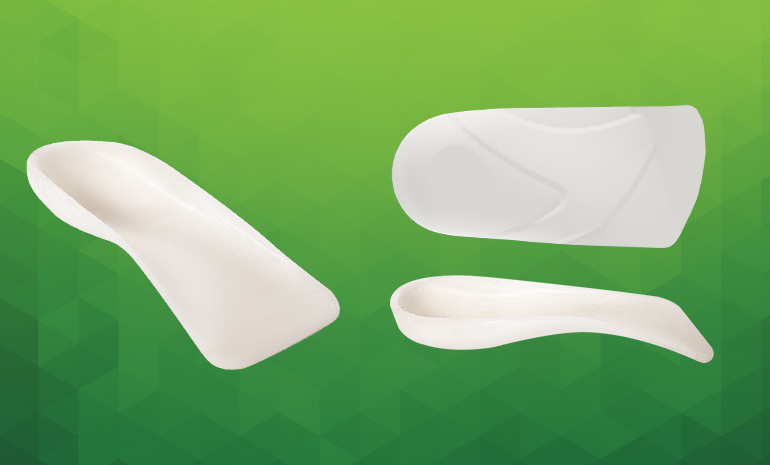In the orthotic manufacturing industry, both in Australia and around the globe, a large amount of waste is produced on a daily basis to make orthotics. That’s why iOrthotics has invested heavily into research and development (R&D) to reduce our impact on the environment.
The solution for iOrthotics was to replace traditional CNC (milling) manufacturing with 3D printing. While 3D printing technology has been around for some time, no orthotic laboratory has been able to fully replace traditional milling. When iOrthotics made the decision to transition to 3D printed polypropylene orthotics, industry experts said it could not be done. Their arguments against 3D printing were that the material was not good enough, the process was too slow, the technology was too expensive and the software needed was not available.
Over the past 18 months our lab has tested materials, software, hardware and design processes to ensure our podiatry clients would receive a product not simply equal, but superior to traditional polypropylene.
The R&D process has included:
- Testing over 50 different 3D printing materials from around the globe for strength, durability and flexibility
- Testing the products under duress and patient conditions
- Testing a wide range of printing methods
- Experimenting with different designs and eliminating weak points
- Consulting with industry professionals and existing customers
Most notably, iOrthotics have been working with the University of Queensland’s Engineering Department to test the stress and strain properties of our EnviroPoly material. This study will help guide further development and allow us to produce higher quality, research driven devices.
In addition, we consulted with our client’s to gather feedback about improvements we can make to the devices. We’re not afraid to admit when we’re wrong and we fully understand that there’s no better feedback than from our podiatry customers.
From this process, we have developed a unique 3D printed orthotic device appropriately known as EnviroPoly.
By introducing EnviroPoly orthotic devices, iOrthotics has been able to transition to almost zero waste compared to polypropylene products. When a podiatrist chooses EnviroPoly, there’s over a 99% reduction in waste compared to milled polypropylene orthotic devices. Not only are our 3D printed orthotics good for the environment, they’re lighter, thinner and stronger than ever. Not to mention, they look great too!
3D printing has the potential to revolutionise the industry from a sustainability and design perspective. Our business is committed to reducing the scale and scope of the environmental impact of plastic and rubber based materials and products in the podiatry industry.

